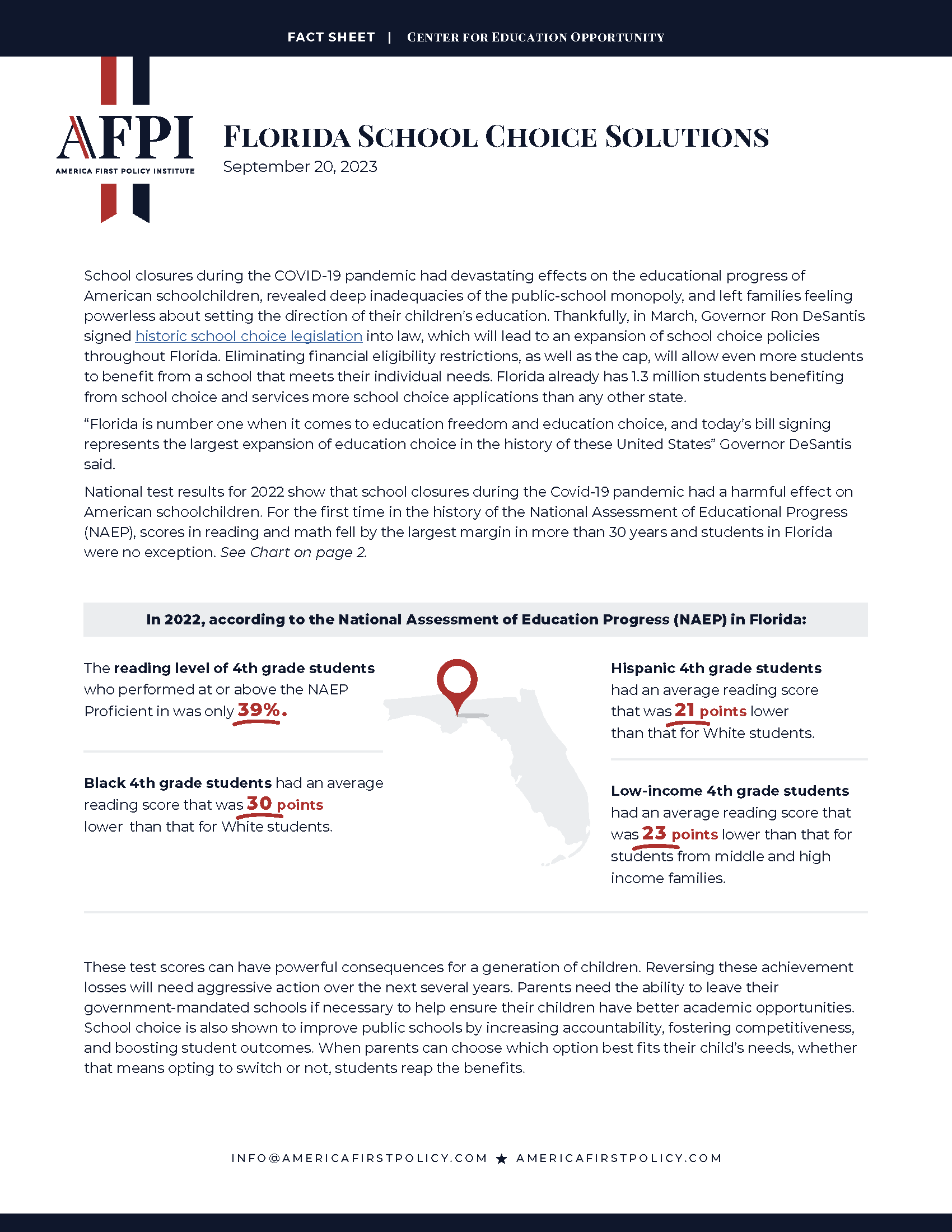Florida School Choice Solutions
School closures during the COVID-19 pandemic had devastating effects on the educational progress of American schoolchildren, revealed deep inadequacies of the public-school monopoly, and left families feeling powerless about setting the direction of their children’s education. Thankfully, in March, Governor Ron DeSantis signed historic school choice legislation into law, which will lead to an expansion of school choice policies throughout Florida. Eliminating financial eligibility restrictions, as well as the cap, will allow even more students to benefit from a school that meets their individual needs. Florida already has 1.3 million students benefiting from school choice and services more school choice applications than any other state.
“Florida is number one when it comes to education freedom and education choice, and today’s bill signing represents the largest expansion of education choice in the history of these United States” Governor DeSantis said.
National test results for 2022 show that school closures during the Covid-19 pandemic had a harmful effect on American schoolchildren. For the first time in the history of the National Assessment of Educational Progress (NAEP), scores in reading and math fell by the largest margin in more than 30 years and students in Florida were no exception. See Chart on page 2.
In 2022, according to the National Assessment of Education Progress (NAEP) in Florida:
- The reading level of 4th grade students who performed at or above the NAEP Proficient in was only 39%.
- Black 4th grade students had an average reading score that was 30 points lower than that for White students.
- Hispanic 4th grade students had an average reading score that was 21 points lower than that for White students.
- Low-income 4th grade students had an average reading score that was 23 points lower than that for students from middle and high income families.
These test scores can have powerful consequences for a generation of children. Reversing these achievement losses will need aggressive action over the next several years. Parents need the ability to leave their government-mandated schools if necessary to help ensure their children have better academic opportunities. School choice is also shown to improve public schools by increasing accountability, fostering competitiveness, and boosting student outcomes. When parents can choose which option best fits their child’s needs, whether that means opting to switch or not, students reap the benefits.
At America First Policy Institute (AFPI), we believe that school choice is the key to ensuring that all students—regardless of background, neighborhood, or ability—should have access to a stellar education. Providing such education is at the core of traditional American values and remains a top institute priority. Thanks to Governor DeSantis, Florida students and parents will be hindered no more. Because of AFPI’s deep commitment to the school choice mission, the number of states passing universal ESA programs has increased from zero to seven in less than two years.
As the Chair of AFPI’s Center for Education Opportunity Scott Turner repeatedly states, “No one knows the needs and interests of a child more than their parent or guardian.”
School choice is representative of two core American values—freedom and opportunity. At AFPI, we believe that the purpose of education is to prepare Americans for the rights and responsibilities of citizenship. As public support for school choice continues to grow, students across the nation will have access to schooling that meets individualized needs, and educational outcomes will improve. Most importantly, parents will be empowered to have a stronger voice in the conversation about their child’s schooling. While the Biden administration tries to stall progress on school choice policies, the Center for Education Opportunity at AFPI remains highly committed to the school choice mission.
